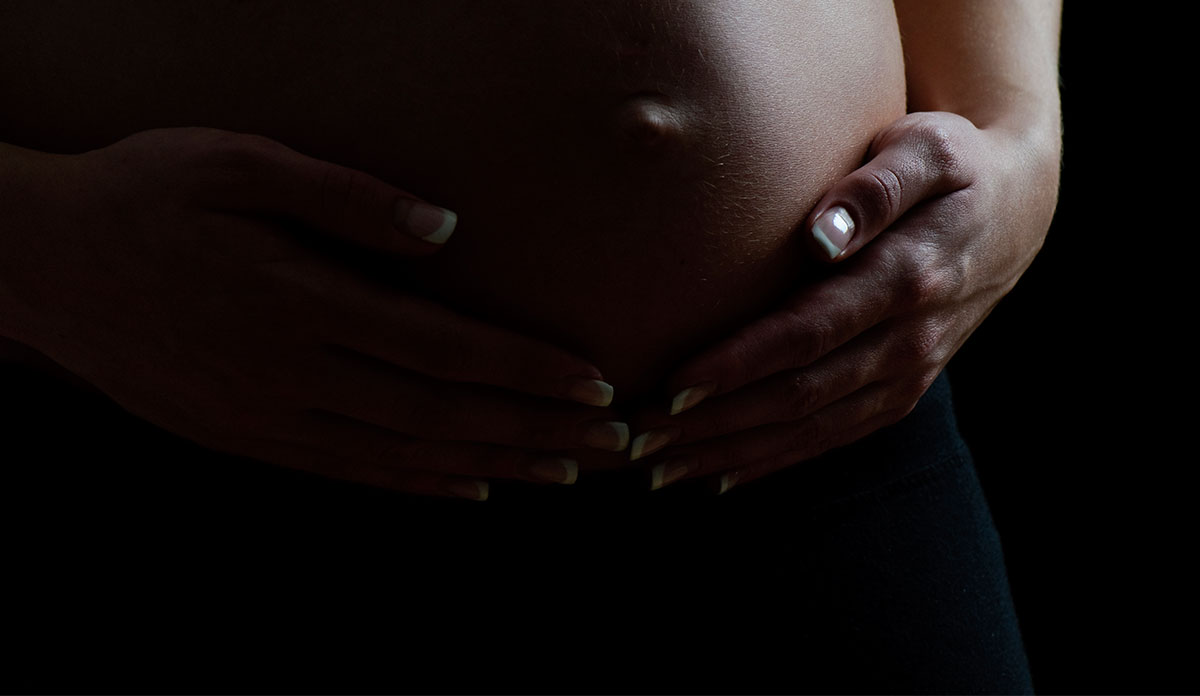Anthropologist Megan B. McCullough describes her experience of pregnancy as both joyful and stressful, particularly in the context of prenatal care. This stress began when her OBGYN told her that she was too fat to have a baby and that her pregnancy would almost certainly be plagued by complications. The doctor argued that weight loss is a matter of self-control and that she would have to lose 100 pounds or seek prenatal care elsewhere.
During her pregnancy, McCullough continued to experience subtle questioning of her personhood and moral worth based on her status as a fat pregnant woman. This is not an uncommon experience for people in prenatal care, leading to heightened anxiety. We must interrogate the potential for unintended harms resulting from weight prejudice in both maternal health care and population-based interventions to address the “obesity epidemic.”
There is growing concern about both pre-pregnancy body weight and excessive weight gain during pregnancy. This is based on studies demonstrating an increased risk for pregnancy complications and higher body weights in children whose mothers are considered to be overweight or obese. Some researchers have argued that maternal fatness is an important driver of childhood obesity. Other scholars have raised important concerns about the role of biomedical research in reproducing racial stereotypes and weight stigma, with serious implications for experiences of pregnancy.
In 2009 the Institute of Medicine (IOM) released guidelines for weight-gain during pregnancy based on body mass index (BMI) categories. They argued that health care providers should work with patients to monitor weight gain during pregnancy, and that prospective parents should be counseled to achieve a normal BMI before becoming pregnant. These authors, like many others, focused on the elevated risk for minority women of starting pregnancy with a high BMI relative to white women.
There is an ongoing tendency in medicine and public health to treat weight as a function of individual knowledge and lifestyle choices, despite the fact that dieting and other behavior changes are rarely associated with sustained weight loss. Jonathon Wells argues that body weight is best explained by social inequality and capitalist food production. For example, people with low incomes experience more fluctuation in food availability and quality leading to predictable changes in metabolism. Racial discrimination is also associated with higher BMI and waist circumference and weight-gain.
The scientific conversation about weight-gain during pregnancy raises important social and racial justice concerns.
Importantly, weight stigma is associated with stress and likely explains some of the negative health consequences of higher body weight. Ethnographic research documents that, despite the persistent public health focus on educating people about diet and exercise, fat people are very conscious of popular and scientific discourses on diet and nutrition, and practice a lot of self-surveillance, which can negatively influence health.
I conducted a review of intervention studies designed to limit weight-gain during pregnancy among low-income and minority women. Most authors of the studies I reviewed noted that low-income and minority status are risk factors for pregnancy weight-gain above the ranges established by the Institute of Medicine. But I found limited acknowledgement or discussion of the structural factors affecting weight such as inability to afford healthy foods. Instead, there was a consistent focus on the need to educate pregnant people about exercise and nutrition and to strictly monitor and limit weight-gain. Few studies addressed the possibility that individual behavior might not be the most effective place to intervene. Likewise, I found little discussion of the potential for behavioral interventions to increase weight stigma.
The scientific conversation about weight-gain during pregnancy raises important social and racial justice concerns. Natalie Valdez argues that such studies position mothers as the primary environment of concern for their offspring, while systematic racism, stress, pollution and violence are ignored. Further, as powerfully illustrated by authors like Dorothy Roberts, Black women in particular have long been subject to greater critical scrutiny and coercive control of their parenting and reproduction.
It is important to ask critical questions about how weight-gain recommendations are likely to play out in prenatal care settings, including heightened weight stigma and heightened medical surveillance of low-income and minority women. McCullough’s experience illustrates, in particular, how the recommendation to conceive only in the normal BMI range can affect access to medical care. This recommendation has the strong potential to worsen health care disparities and reproductive injustice.
Photo via Getty Images














